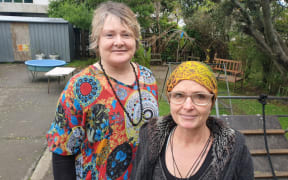The New Zealand Educational Institute (NZEI) wants an immediate 11 percent pay rise to help early childhood teachers close a big pay gap with kindergarten and school teachers.

Photo: 123rf
It acknowledges, however, that employers will not be able to meet the claim unless the government, which is not part of the negotiations, agrees to increase the sector's subsidies.
The NZEI said teachers in early learning services earned an average of 23 percent less than kindergarten teachers but by next year some would be earning earn half as much.
It said only a small percentage of the sector's 30,000 teachers belonged to the union, but it invited all early childhood teachers to get involved in its campaign for better pay regardless of whether they were members.
An NZEI member and early childhood teacher Chloe Lundie-Hodge said about 4000 teachers were covered by the collective agreement the union negotiated with some early childhood centres but the resulting pay rates set a standard for pay in many other early childhood services.
She said many teachers were unhappy that kindergarten teachers had maintained their pay parity with school teachers because unlike other early childhood teachers they negotiated their pay rates with the Ministry of Education.
"We can sense that there's a bit of upset at once again kindergarten achieving parity and we've been left behind for so long. So what the union's trying to do is we want everybody, unionised or not, everybody to come together in the ECE sector and then band together so we can have more bargaining power to work towards parity and make that come faster," Ms Lundie-Hodge said.
"We want the whole sector to achieve parity because its been far too long with low wages and feeling undervalued."
Ms Lundie-Hodge said government funding increases would be key to achieving pay parity.
"We've had over a decade of funding freezes in ECE so while the cost of living has risen, the funding hasn't risen for ECE services so they're unable to keep up with wage increases that we need or achieve parity with other education sectors," she said.
She said the union hoped collective action would help persuade the government to increase funding and the Education Minister, Chris Hipkins, told this week's NZEI annual conference that early childhood funding was top of his list ahead of next year's government Budget.
Ms Lundie-Hodge said low pay was driving a lot of teachers out of the sector.
"I think it's about 40 percent of teachers are leaving in their first five years. They come out of university so excited to create change for these children and provide amazing curriculum programmes but then they're finding out that our work is undervalued and it can just be too hard to make a living so they're going elsewhere where there's maybe less work, less demand, but they're getting the same or more pay."
The union said it would claim an immediate pay rise of 11 percent with further increases to close the pay gap with kindergarten and school teachers.
NZEI national secretary Paul Goulter said primary and secondary teachers' battle for pay rises earlier this year raised the visibility of pay parity for early childhood teachers.
"When the kindergartens got it, the rest of the sector quite correctly have said we as professionals are not being respected properly, we need to be paid the same as other teachers right across education," he said.
He said the union was also planning of week of action in November to raise public awareness.
"The employers that we've spoken to across the sector are very, very strongly in favour of this campaign because they're the ones who are bearing the brunt of the shortage in early childhood education which is really acute now," Mr Goulter said.
"So the employers would obviously see this as a way of trying to address their own staffing problems."





